One in five people spends more than 40 hours a week online. I doubt that this stat is surprising to many. I definitely spend more than 40 hours a week online! We can do everything online from chatting with friends, playing games, studying and of course, shopping. With adverts on every platform, website and digital space imaginable, online shopping can feel a bombardment to the senses. It’s no wonder that many people are looking at how to be an ethical consumer in the online world of today. With so many options and things to consider in a purchase, it can feel overwhelming. In this article, I offer a simple guide on how you can enact ethical consumerism in your day to day without feeling overwhelmed.
What is an Ethical Consumer?
I’ve written about ethical consumers previously, and whether they matter to marketing. The short answer is yes they do matter. It’s a growing demographic but what are ethical consumers? Broadly speaking it’s anyone who chooses what to buy and where to buy it based on their prescribed ethics. Everyone’s ethics are different and will place value on different areas but the most common ethical consumer choices are:
- Environmental – organic, plastic-free, zero-waste, natural materials, carbon neutral, recycled, compostable.
- Animal welfare- Vegan, vegetarian, cruelty-free, bee-friendly, palm oil-free, not tested on animals.
- Workers & production – Fair Trade, a living wage, locally produced, handmade.
- Supportive – Charity, non-profit, LGBT+, POC owned, social enterprise.
How to be an Ethical Consumer
There is no one way to be an ethical consumer, it is a personal journey that only an individual can decide. Of course, we should remember for others and ourselves that choosing ethical products or services is not always an option. Time, cost and accessibility can all hinder the ethical consumer. It’s about doing what you can when you can. There is no such thing as perfection when it comes to ethical choices. I hope the below information will help you make informed decisions.
Define what’s important to you
If you’re reading this article, it’s fair to say you’d like the world to be a better place. It’s an insurmountable task for just one person that can easily lead to feeling overwhelmed. So, my first piece of advice is to define what is most important to you, or what you feel will make the biggest impact. By creating a priority list, you can take some of the strain out of weighing up options.
Here’s an illustration of two potentially conflicting options. You want to buy a new moisturiser that’s good for your skin and good for the planet. You find an independent retailer that is POC owned, they stock a brand that is not tested on animals, is vegan, uses sustainable palm oil and has great reviews. The moisturiser is currently out of stock but will have it back in 10 days. It costs £27. You find another moisturiser you like the look of on Amazon. It qualifies all of the above plus the container and packaging are plastic-free and the moisturiser has no palm oil in it. Amazon has a long list of ethical issues and controversies but you can get the product this week and it only costs £12.
Who would you choose? There are lots of different things to consider here and so you need to weigh up the options carefully. Having a priority ethic means you can make a decision more readily. Consider what values are most important to you and keep a list to help you make good online shopping choices.
Learn to evaluate businesses
The next step would be to put those values into practice. Not always easy when there is countless greenwashing and woke washing examples. You need to fine-tune your research and analytical skills to be an ethical consumer in today’s online world. Here are a few key ways to evaluate a business for ethics.
- Do they have a good collection of policies? This includes privacy policy, terms & conditions, anti-slavery and environmental policies. Look for detailed and verifiable information, not just generic copy.
- Are they accredited? Do they hold accreditations for the things that matter to you?
- Are their product materials and ingredients clearly listed and explained? Do they use words like sustainable or eco-friendly and explain how they are? If not, that’s a big red flag.
- If you google their brand, do any controversial news articles come up. For major brands googling ‘brand name’ + controversy is one way to easily find this kind of information.
You can also use tools to help you find out a company’s credentials. The ethical consumer and The Good Shopping Guide are websites I frequently use to make ethical consumer choices.
Take action
If you want to be an active ethical consumer, reaching out to brands you like, but could do better, is one way to take your ethical consumerism to another level. Writing emails, letters or asking questions on social media helps build the conversation. While one letter asking your online retailer to use more plastic-free packaging won’t necessarily work straight away, the more people that do this, the more brands will take notice.
On the opposite end, is boycotting brands and letting them know about it, but more importantly, letting others know about it. One of my favourite quotes is from Anna Lappe, an author, educator and sustainable food advocate. She said, “Every time you spend money, you’re casting a vote for the kind of world you want.”. Withholding our hard-earned cash from corporations that do not benefit the world is one small way we can feel empowered as ethical consumers.
Continue to Learn
The world isn’t static, it changes and the organisations and people within them change too. Being an ethical consumer is not easy in the modern digital world. If we endeavour to stick to our principles, we must constantly evaluate our purchases and keep our fingers on the pulse. Sometimes we choose a product or brand we later find out is not up to scratch. Instead of blaming yourself, you should hold the business that caused it to account. There have been many brands that I have invested in only later to find out something awful about their practices. But, at the time I purchased them they were the best option and seemingly the most ethical.
One genuine example from my own life is a phone I bought several years ago. My old phone had died and I was looking for a replacement that would be my most ethical option. Looking at what choices my carrier provided, paired with ethical reviews and my own budget, the brand Huawei came out on top for environmental, animal welfare and human rights. But, about a year after I purchased it, there was news of issues surrounding cybersecurity, intellectual property, and human rights violations. This didn’t mean I was going to chuck my phone away immediately, but it meant that if I needed a phone in the future I would be looking for another choice. For anyone wondering, I use a Fairphone now and I cannot rate it highly enough.
Being an Ethical Consumer
It’s not easy being an ethical consumer, it takes time, patience, research skills, willpower and sadly in many cases a bigger budget. Find the causes and choices that are most important for you and make small steps to buy more ethically in 2022. As part of The Ethical Move, I have committed to making my business an ethical marketing consultancy. If you don’t see me upholding my Ethical Move pledge, let me know.

